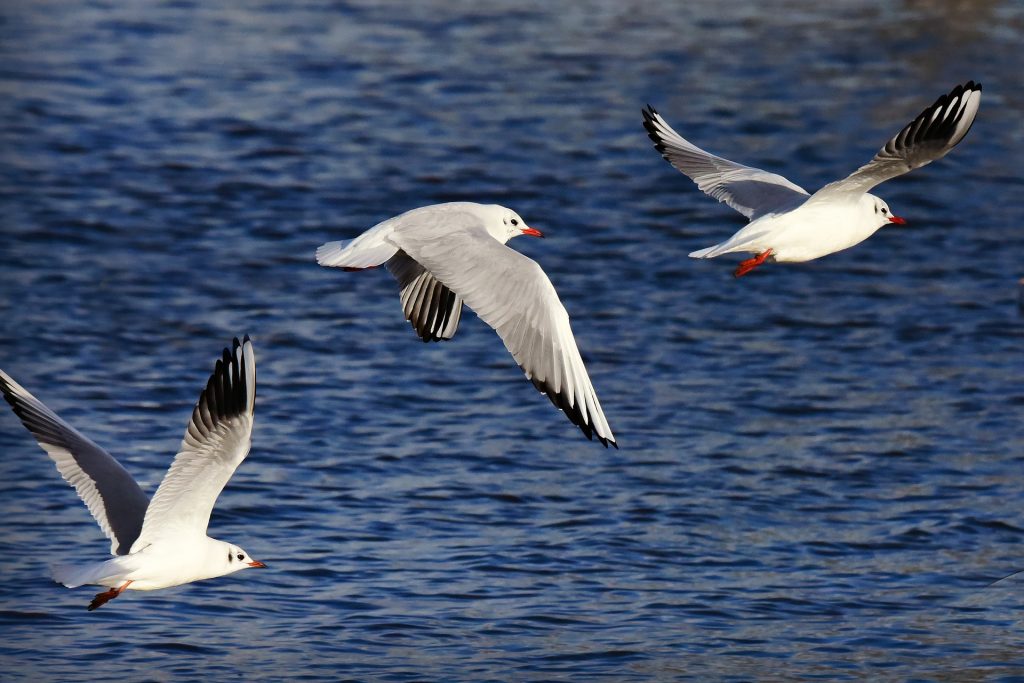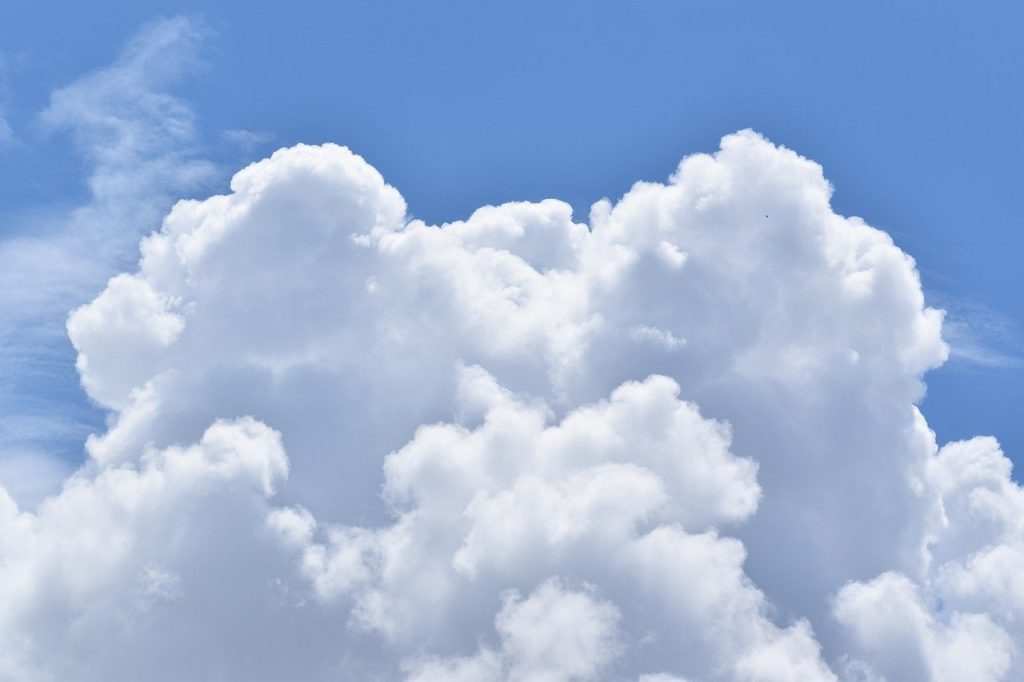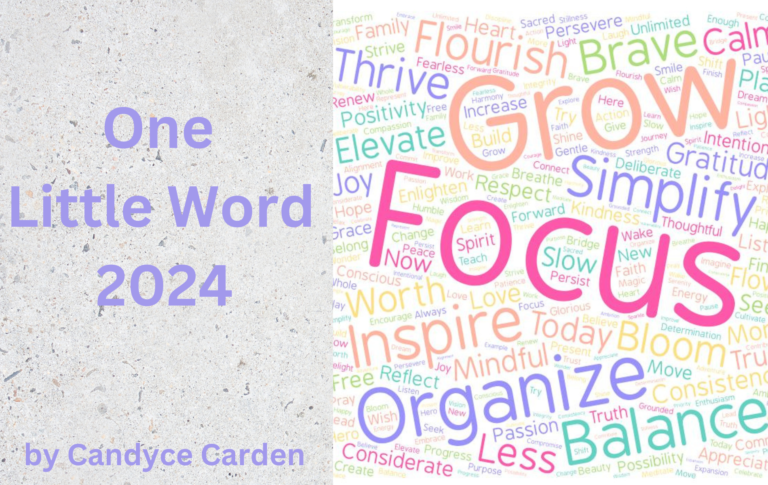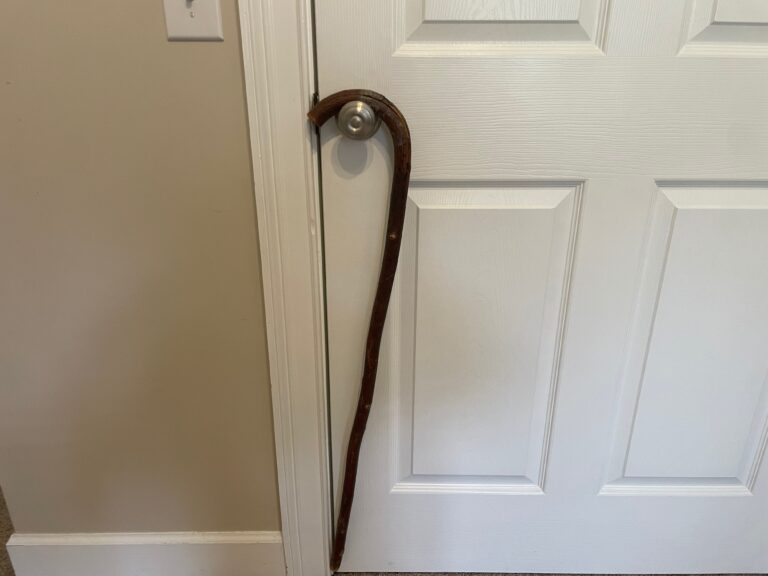Writing Micropoetry is Quick, Easy, and Fun

Seagulls soaring, circling, searching, swooping, until finally — dinner! Micropoetry is an umbrella term for various forms of short poetry. The only rule, really, is that it’s brief. Not only are micropoems quick, easy, and fun, composing them offers several benefits.
five reasons to become a fan
1. Writing Micropoetry Slows Us Down
Be still and know I am God.
Psalm 46:10 (ESV)
Micropoetry keeps us in the moment, requiring us to pause and ponder. The practice pulls us out of our electronic world and puts us in the real world. Looking for micropoems increases our chances of encountering God, and creating one often becomes an expression of praise.
Vivid pinks and purple of God’s crepe myrtles rejoice in rain-cleansed morning air
2. Writing Micropoetry Heightens Creativity
God created mankind in his own image, in the image of God he created them; male and female he created them.
Genesis 1:27 (NIV)
Highly creative people are naturally keen observers of their surroundings, but some of us need help developing the skill. Opening our eyes, ears, noses, mouths, hearts and minds to find micropoems trains us to scrutinize our settings for sensory details. Finely-tuned observation skills open wider our windows of creativity.
And because the words we toss together to compose a micropoem please us, we’re inspired to carry this creativity into other outlets. They can serve as a warmup for other creative efforts.
A beach storm brewed as I wrote this one. It won’t win a prize for creativity, but I like it:
Thunder growling, gray sky hovering, fog descending over the bay; looks like rain will be my sunshine today
3. Writing micropoetry is good for our health
Do you know that your bodies are temples of the Holy Spirit, who is in you, whom you have received from God? You are not your own;
1 Corinthians 6:19 (NIV)
When we live in the present, we’re happier and healthier. Many micropoems are captured in nature, which means we’re outside moving. What’s more, writing them lessens stress because we’re focused outward rather than inward. We aren’t dwelling on our worries or problems.
Writing micropoetry increases our gratitude. Studies show gratitude helps us improve our health, deal with adversity, and build better relationships. Gratitude flows when we discover a micropoem. But you don’t have to take a nature walk to find them. I spotted this one while looking out my front door:
Six proud crows, military posture perfect strut the street, cross my lawn, What’s up?
4. Writing Micropoetry connects us to others
Finally, all of you be of one mind, having compassion for one another; love as brothers, be tenderhearted, be courteous.
1 Peter 3:8 (NKJV)
Cool April morn begs gas logs to knock off the chill; “Wasteful,” my dad whispers from his grave. With a smile, I light them anyway. As I penned this one, I lovingly recalled my dad’s frugality, how he came of age during The Great Depression. His exasperation with me because my teenaged self never remembered to turn the lights off when I left a room. I take a moment to thank God for this man who lives on in my heart.
5. Writing micropoetry draws us closer to god
Every good and perfect gift is from above, coming down from the Father of heavenly lights, …
James 1:17 (NIV)
Whatever inspires me to write a micropoem is a gift from God. When I find one, I give Him thanks. Many come from His natural world, but they don’t have to. Other sources have included:
- people in my life
- memories
- emotions
- romance
Scripture tells us to “seek His face always” (1 Chronicles 16:11 NIV). I see Jesus in micropoems, and composing them moves me in His direction.

Tender blue sky, showing off clouds of froth; “Rest in today, child,” He calls. “Tomorrow is hours away.
invitation to create
Creating a micropoem puts us in a state of mindfulness, which slows our pace. They are stress-busters and joy-inducers. Micropoetry is all around. Enter the moment and play with a few words. Forget the grammar rules, and remember the process is more important than the product.
Only two steps are involved:
- Notice Them
- Record Them
Drop one in the comments section below. It’ll make you feel good.
Micropoetry keeps us in the moment, The practice pulls us out of our electronic world and puts us in the real world. Looking for micropoems increases our chances of encountering God, and creating one often becomes an expression of… Share on XImages from Pixabay







Our worries, our fears, our tears…
Steal away peace,
Steal away joy.
It’s hard to let go.
Our Father’s arms
Reach out
Strong enough, loving enough
To take our burdens
As his own.
Grace.
Beautiful post! I enjoyed reading all all these wonderful posts and micropoems! I especially enjoyed the verses you chose to share. Thank you for your own pieces and the stories behind them!
You have shown that not only can micropoetry praise God, but that it can also be a prayer.
Beautiful. And thank you. You’re in my prayers.
Lovely Idea! Thanks for sharing your ideas with us. This would be a perfect segueway into the month after April poetry month. Short poetry snippets for May!
Thanks Tiffany! And tomorrow (the 29th) is National Keep a Poem in Your Pocket Day. These short forms make nice pocket poems.
Thank you for sharing the benefits of writing micro-poetry. Creating poems from Bible verses would help us remember the truth in them.
Yes, that’s an excellent point. Not only can micropoems be expressions of praise, move us closer to God, they can also deepen our learning and understanding of His Word. Thanks, Jeannie!
Writing poetry is out of my comfort zone, but I’ll work at adding a few micropoems to my journal.
I know you could do it. You push words around in the novels you write all the time. (That’s out of my comfort zone!)
Sun bright and shining
But can the sun illuminate a dark hole
A deep dark hole
Covered with shadows and pain
God knows and whispers
The whispers come in new buds
It grows louder with birds singing
As loud as the roaring waterfall after a heavy rain
The shadows disperse
Hearts can be made whole again
Thank you, Spring, for the reminder
That’s just beautiful, Whitney! God often speaks hope to us through nature if we pay attention. Thanks for sharing this.
I love walking in nature and micropoetry seems to be a perfect match for what I often have trouble describing in thought or narrative. I will try! Our Bible is filled with beautiful word pictures and poetry. Thank you for helping me consider another view of God’s amazing creation. Wishing you blessings, my friend.
Love the vivid language of the Bible. I know a high school teacher who uses passages from the Bible to teach many figures of speech.
Thank you for dropping in!
scared of the dark? but you are light my love the dark is afraid of you!
The constant pursuit of perfection only ends in discouragement, but the constant pursuit of the face of God only ends in perfection! from glory to glory
soaring flying floating by your laughter floats into the sky
up up and away laughing the day away
I love all of these Ashley! The second one was very applicable to me once upon a time, but I’m getting better with that perfection seeking thing.
And the first one is a good reminder of how Satan (darkness) wants to dim our light. We must fight back!
Thanks for these
I lived the way you showed how God’s Word to show your point. I think this may be a great way. To journal thoughts when our hearts and minds can’t even write all that we hold. Thank you for introducing this!
I journal this – usually for my eyes only. A correlation I’ve noticed is the closer my walk with Him, the more I find.
Poetry has always been an expression of the thoughts that swirl around in my head before they are ever penned to paper. I love the idea of micro poetry as a way to keep me writing more in the moment my thoughts begin. Thank you for your post Candyce. Many blessing to you.
Leona,
Sometimes I write more in my head than on paper. That’s why they said “Her head is in the clouds!” about me more than once as I grew up. Thanks for stopping by!
Amazing post; and the way you used God’s word to demonstrate the power and beauty of micropoetry. I love it! Thank you Ms. Candyce. A new term I had never truly considered before.
JD, The form was birthed on Twitter I do believe – sometimes referred to as Twitku as well as micropoetry. I’m afraid I use it to procrastinate on my other writing sometimes but it is good for me. I’m sure you do it in your head all the time as you walk around that beautiful ranch you have.
Also check out Kindku and Sixku from Auroras & Blossoms Website. They are in to creating poetry forms based on the Haiku and other blending of existing forms.
I checked this site out and love it! I especially like Pareiku! Subscribed. Thanks for sharing.
I LOVE this post, Candyce! I’m bookmarking it for future reference. I enjoy reading and writing poetry but my recent schedule has squeezed both out of the picture, unfortunately. I look forward to giving micro-poetry a try and I may just add this post to the Creative Pauses Facebook group since our theme this month is poetry/Psalms! Blessings!
Cathy, I would be honored if you decide to do that. Wishing you continued good things!